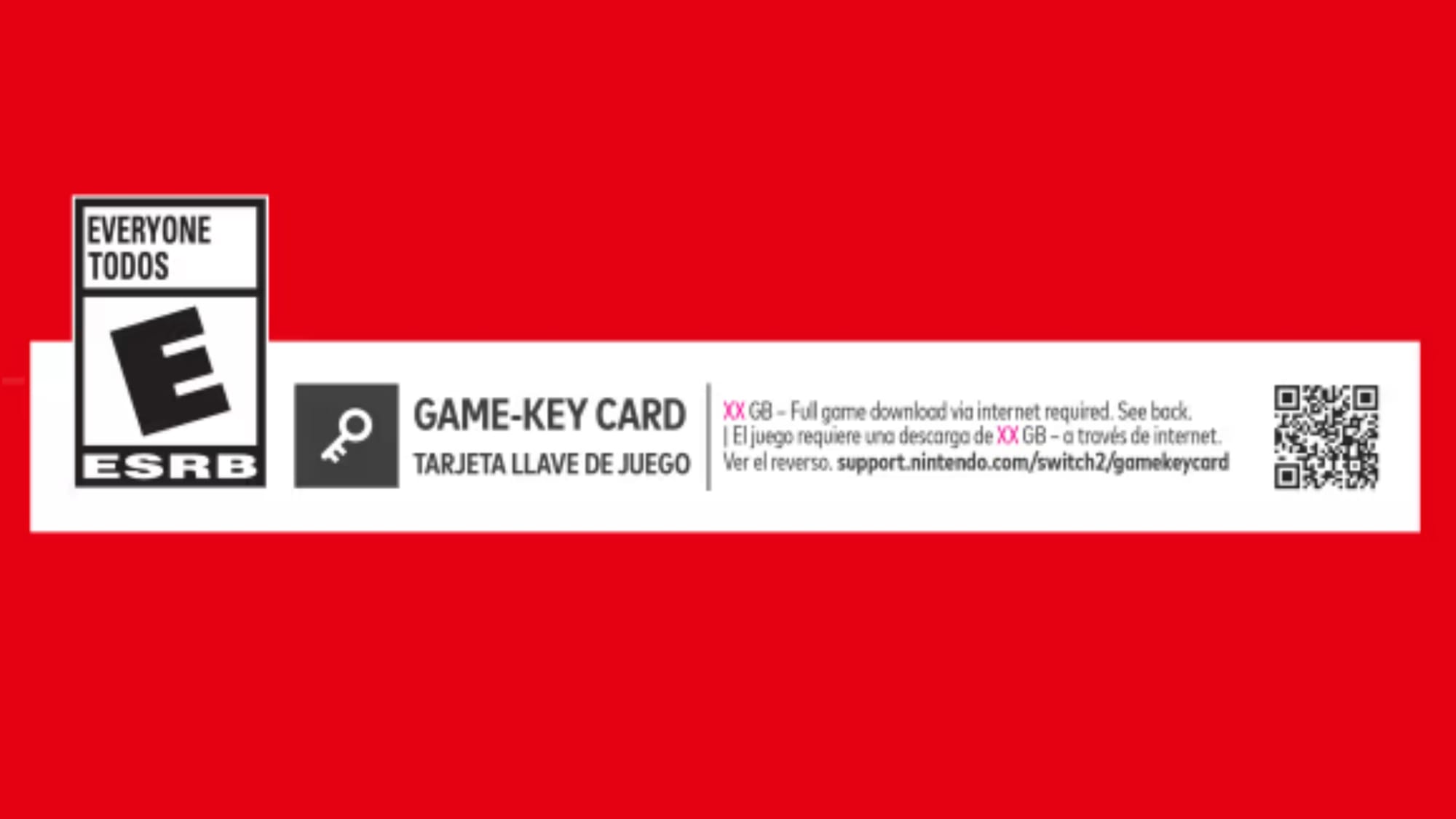How Nintendo's "game-key cards" actually work

I've seen a remarkable amount of misunderstanding out there on how Nintendo's game-key cards work. People are losing their ever loving minds over all things Switch 2, but this one really gets me because the people who are the most upset about it seem to not know how they actually work.
A history lesson
The first thing to know is that this idea of shipping game boxs without the full 1.0 version of the game on the cartridge is far from new with the Switch 2. Here's an Amazon search showing around 300 normal Switch games where the physical box you buy has nothing but a download code in it.
Basically, if you're suddenly upset about games not being printed to the cartridge, you either haven't been paying attention until now or it actually hasn't impacted your life negatively (since you maybe haven't bought a physical game in years).
As for why companies would maybe not want to print their full game on a game card: cost. Printing your game to a card has always been far more expensive than doing it to a CD, DVD, or Blu-ray. Larger game companies can get away with it, but especially smaller publishers can't afford to give up that much margin, and this is a big reason why they would opt to do something like the game-key card.
How the new game-key cards work
For Switch 2, instead of shipping a box to stores with a piece of paper that has a download code on it, these game-key card titles will have a physical game card in them, and there will be no download code. When you plug the card into your Switch 2, it will authenticate you to play the game and trigger a download from the eshop.
That sounds pretty similar, but here's where it gets better in my opinion.
First, you don't have to key in a long code, which is minor for some, but welcome. And as my friend Steven Aquino would tell you, it's also an accessibility win as it simplifies the process.
After the game is downloaded to your Switch 2, you can treat that game card exactly like it was a physical game. If you want to play the game, you need to plug in the card to the console. You don't have a digital license to the game like you do with a game code, the card itself is what gives you permission to play the game on your specific console. This means you can resell the card in the future or share it with a friend, both of which were impossible with the old game code system so many Switch games used. We'll see if full-priced games end up doing this, but being able to resell games is going to get even more compelling when we're paying even more for games, just saying.
The frustration
Now look, I get it, it's annoying to have physical media that doesn't physically have the media on it. I say this as someone who got an Analogue pocket a few years years ago and experienced a very specific joy when I plugged in my old Game Boy Advance games from 20 years ago and they just played perfectly like they did when I was a teenager. On the rare occasion that I buy a physical game, it is for that reason. I want to potentially have the experience in many years of being able to play this game as it was in 2025. I personally own exactly two physical games for the Switch, Breath of the Wild and Tears of the Kingdom, both of which I think are some of the best games I've ever played, and am happy knowing that I have them physically, so no matter what happens, I should be able to play these games many years down the road.
That said, these new game-key cards seem to me to be an upgrade over the digital code system that hundreds of Switch games have used for several years now. After the initial download, the game card works like any other game card, and the ability to share or trade with other people gives it an edge over the digital license that you would have with a game code. This is better than what we currently have with the switch. And I wish people would think about this a little bit more before instinctually getting mad at everything, even when things are an actual improvement.